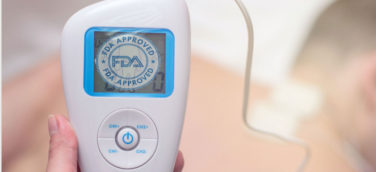Medical science Liaisons know that change is coming; How are they cashing in?
Medical science liaisons (MSLs) within pharmaceutical companies deal in a special currency: scientific exchange and real-world insights gathering. Only they can share certain types of information with a growing number of medical stakeholders and back medical insights to guide strategic development and brand decisions. Yet, can anyone be certain that this highly valuable currency is being spent wisely?
While the MSL role is expanding across all stages of pharmaceutical development and to encompass a growing number of audiences, the industry is struggling to measure the impact of MSL activities. Overall, what value does the function deliver in quantifiable terms?
The race is on to develop the right key performance indicators, measurement tools, and processes for gauging the impact of MSL teams, ultimately to improve outcomes. Fortunately, some companies are already employing innovative solutions, with more on the horizon.
MSLs Command Broader Reach, Greater Impact
Medical Affairs teams are responsible for educating and contextualizing complex science for diverse audiences, gathering actionable insights to inform medical strategy, and identifying opportunities for data-generation activities for their organization. They’re involved at all stages of a product’s lifecycle, from early stages of development, through clinical trial execution to pre-and post-launch commercialization activities.
MSLs play a critical role in bridging the gap between research and development (R&D) teams and commercial teams, helping to infuse insights from the real- world practice of medicine into the drug development continuum. For instance, they can report back on unmet medical needs in the market and on prescriber or patient experiences with the standard of care or the product being utilized.
These real-world insights can suggest the opportunity for a label extension, the need for a follow-up study, or the usefulness of forming a registry. Ideally, insights from MSL activities lead to better evidence and more successful development programs and patient outcomes.
In recent years, the sphere of stakeholders that MSLs are tasked with reaching has broadened beyond key opinion leaders (KOLs) to include medical organizations, payers, regulators, investigator sites, and patient advocacy organizations. Each audience has its own expectations and preferences for engagement, adding to the complexity of determining the best approach for a scientific discussion and then measuring its impact.
The Challenges in Quantifying MSLs’ Value
In all for-profit businesses, it is common for functions that don’t directly generate income to have to justify the investment made in them. MSLs don’t generate demand in the marketplace, like a traditional sales team. Without an appreciation for the value the role brings, it would be all too easy for companies to cut or eliminate the role.
In short, what shows value gets funded.
The need to measure the impact that MSLs have is not so much a question of effectuating accountability as it is of giving credit where credit is due and, most importantly, of being able to improve the organization’s performance. The Industry has a mounting interest in measuring the impact of MSL work and the right measures will not only shine a light on how integral the function is to the company’s ability to make strategic development decisions. It will also provide direction on ways to enhance MSLs’ success and the organization’s success delivering more therapies to more patients.
Many companies are already quantifying MSLs’ involvement in terms of the number of scientific publications generated, interactions held with KOLs, educational sessions conducted, and conferences attended, as well as in the change in site or patient recruitment success or the number
of trial sites supported. While these are quantifiable and may serve as individual performance objectives, they measure output, not results. They do not tell us to what degree an initiative led by Medical Affairs achieved the desired results, or how instrumental the MSL role was in providing decision support to the company’s medical and brand leadership.
Two Available Options: Knowledge Assessments and Sentiment Analyses
Progressive companies are beginning to use knowledge assessments and sentiment analysis in this way. Both solutions are customized based on the therapeutic area of interest and the companies’ objectives.
Knowledge assessment test the knowledge of an audience before and after exposure to a message. The goal is not to evaluate the skill of the MSL, but rather to assess the degree to which knowledge was transferred during a scientific exchange. One common approach is for the MSL to test a KOL’s knowledge of a topic as a baseline at the start of a visit. Next, the MSL makes a presentation on that topic, perhaps by sharing an infographic that explains a drug’s mechanism of action.. Lateran independent third party conducts a survey to assess what the KOL retained from the exchange. The results would be a measure of the effectiveness of the educational aid used and could suggest the need for refinements in the communication strategy used.
Stakeholder sentiment analysis is conducted on the free-text information that MSLs record in the company’s customer relationship management (CRM) system following an engagement. The Medical Affairs analytics team leverages artificial intelligence (AI) to scan field insights, harmonize them, and sort them into sentiment categories (i.e., positive, negative, neutral) defined according to the organization’s strategic objectives. Management can use the output to ascertain whether scientific information or scientific value messages are resonating with key stakeholders and then consider adapting or refining their clinical, medical, or commercial strategies as necessary.
For example, imagine if a new product in development carries with it transformational efficacy and an
uncommon side effect that needs to be carefully managed by a specialty other than the treating specialty. Without MSL insights before and after launch to understand how this additional
management will be perceived by treating physicians and perhaps pose barriers to utilization of the product in certain patient groups, the pharmaceutical company may not have appropriate programs in place at launch to facilitate management, reduce burden on the site and ensure the benefit-risk profile is well understood. As a result, not only would forecasts be inaccurate, but many patients who are eligible for the treatment may not be given access and experience better outcomes.
Not all companies are prepared to embrace AI in this way yet, but acceptance is growing as companies recognize AI’s ability to amplify – not override – their analytical powers. It behooves pharmaceutical companies – and the MSL profession itself – to be able to demonstrate the value of the MSL function, both in the context of educating external audiences and in delivering insights that drive development decisions. To the extent that insights derived from MSL interactions with external audiences drive the direction of a development program, MSLs can have a significant impact on a company’s success – arguably just as much as roles that generate market demand. But no one will know the extent of that value until it is tracked and measured. As the MSL role evolves, the need for data, tools, and processes to demonstrate the value of the profession will continue to increase.







